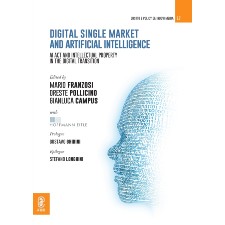Digital Single Market and Artificial Intelligence – February 2024
While standards bodies like ITU and ISO/IEC have a long history of promoting innovation and economic growth, their own structures have not kept pace with technological development and the changing objectives of their participants. IPR policies based on the traditional RAND (Reasonable And Non Discriminatory) commitment can no longer handle a membership focused on Standard Essential Patent (SEP) returns. Other issues have emerged with the RAND pledge: it is contention-prone; it is not matched by an implementer’s equivalent good faith duty to negotiate; it can accept the co-existence of multiple competing patent pools covering the same standard; etc. The leading standards body developing organization for artificial intelligence, MPAI, has addressed these concerns. MPAI participants agree a Framework License (FWL) for MPAI-essential patents which refrains from setting specific values (for instance, royalty rates), but which can establish ground rules, such as that aggregate royalties for an implementation cannot exceed the royalty burden for similar technology. MPAI processes also facilitate the early introduction of pool formation. These novel elements of its IPR Guidelines will be a strong foundation for MPAI’s success while bolstering the so-called “Inventive Loop”.

